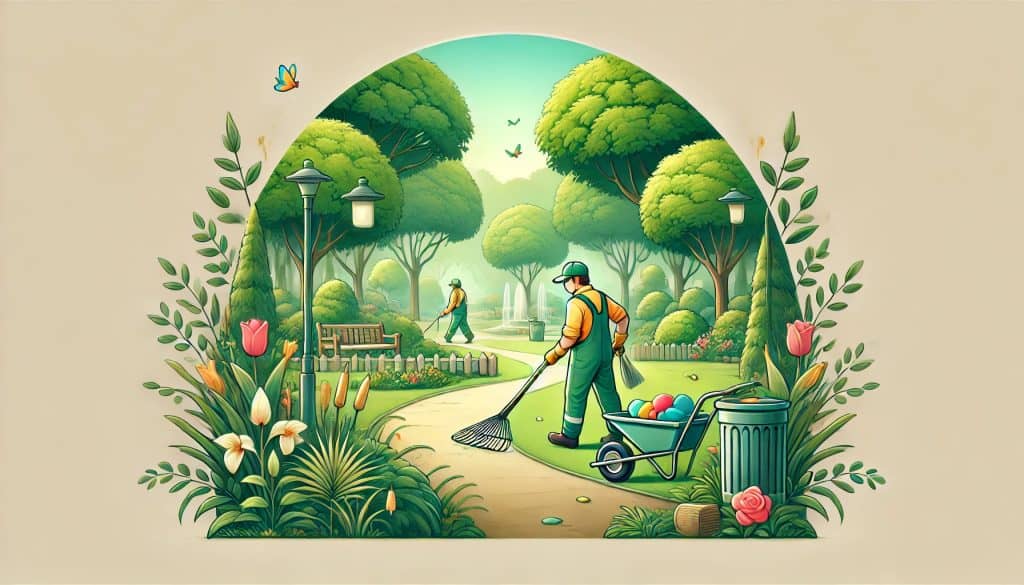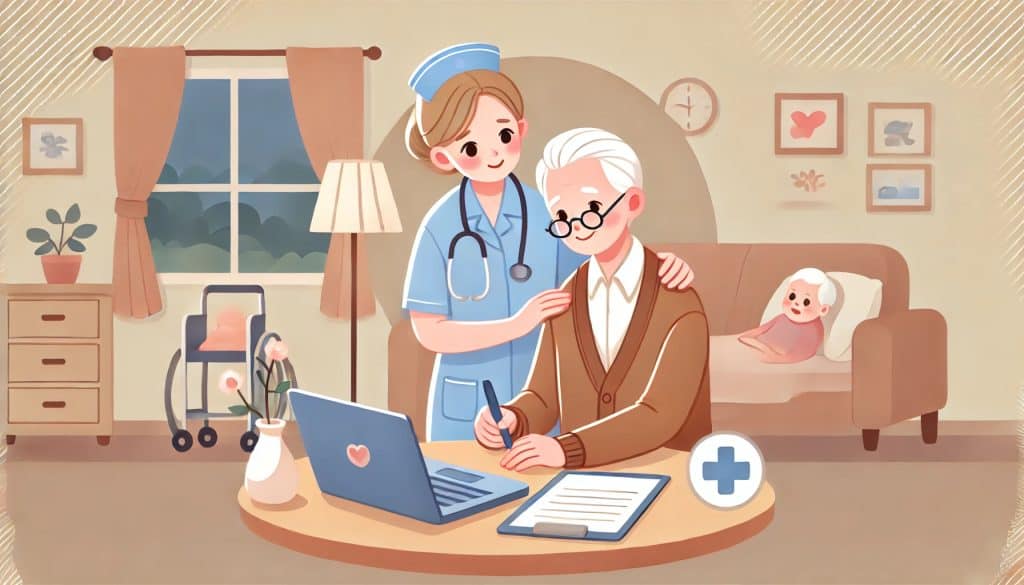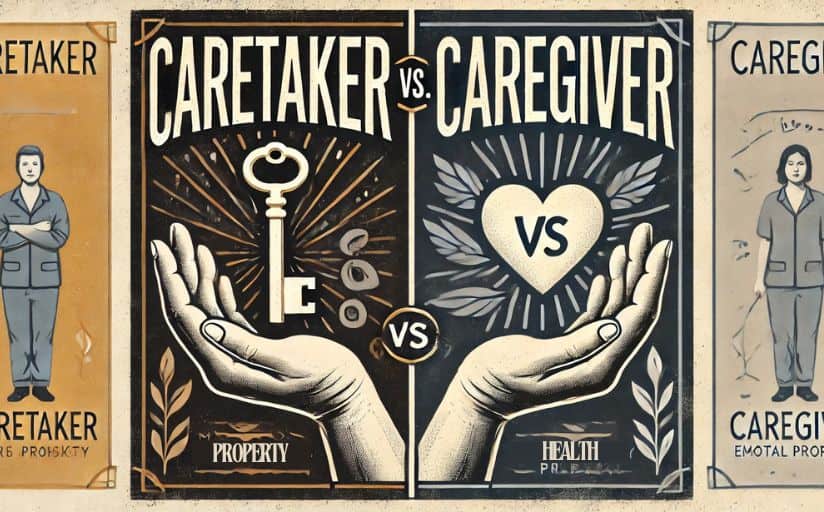Last summer, I was writing a ghost story about a grandmother who became very ill and needed help with her daily duties. (I promise you, it was spookier than it sounds.) My friend was a beta reader of my story and told me that I didn’t need to switch between caretaker vs. caregiver so much.
(If you make a purchase using the links in this post, we may earn a commission.)
She thought I should just pick one word so I didn’t confuse my readers. I explained that I was using the terms to mean two separate things, but she insisted that they had the same definition.
Just like how renounce and denounce are often mixed up, caretaker and caregiver might seem similar, but they actually have distinct meanings. Let’s deep dive into these commonly confused words and see what makes them different from each other.

Difference Between Caretaker vs. Caregiver At a Glance
- Caretaker: A person who maintains, protects, and keeps up a property, animal, or person and may not have medical or support training.
- Caregiver: A professional or family member who cares for someone who cannot perform daily living activities because of their illness, disability, or age.
Would you look at that; my fictional family was already performing caretaking and caregiving duties.
When To Use Caretaker
The term caretaker is a compound noun formed from the words care (charge or supervision) and taker (an act or the action of taking). Therefore, when I think of a caretaker, I see a handyperson who takes care of the routine upkeep of life.
In my story, the dad and the brother are caretakers who help with things like managing finances, doing household chores, and going grocery shopping. A caretaker might also help someone move around the house or play games with them.
However, use caretaker when referring to those involved with the nonpersonal aspects of assisting someone who has difficulty with household activities, such as doing yard work or replacing broken light bulbs.
Caretaker Examples
- After Mrs. Johnson broke her leg, her neighbor acted as her caretaker, helping with tasks like mowing the lawn and taking out the trash.
- The zoo hired a new caretaker to maintain the animals’ enclosures.
- As the historical estate fell into disrepair, the foundation assigned a caretaker to manage the upkeep of the property.
When To Use Caregiver
The term caregiver is a compound noun derived from the words care (responsibility for or attention to health, well-being, and safety) and giver (one that gives). So, a caregiver is literally a professional or family member who gives care to someone.
Unlike caretakers, caregivers most often have the training to handle more personal needs, such as medical issues, decision-making, and hygiene.
The term caregiver also means someone who cares for people for a living, such as a nurse or a certified nursing assistant.
Caretaker Examples
- Maria works as a caregiver, helping elderly patients with their personal hygiene and daily routines.
- When his father developed dementia, Alex became his full-time caregiver, assisting him with meals and medical appointments.
- The caregiver gently helped the child recover from surgery, offering comfort and assisting with dressing changes.

Take Care When Using Caretaker vs. Caregiver
Not to boast, but my friend was wrong. I didn’t have to choose between caretaker and caregiver after all because each word accurately described a different role.
Still, it reminded me of how important it is to use the right term to avoid confusion—because taking care and giving care reflect very different kinds of support.
If you’d like to learn more about root words and their meanings to avoid the type of confusion my friend found herself in, the following resources can be incredibly helpful:
👉 BUY – Merriam-Webster’s Vocabulary Builder
👉 BUY – Dictionary of Word Origins: The Histories of More Than 8,000 English-Language Words
And now that you know all about writing about caretakers and caregivers, why not explore becoming a health writer? It’s a great way to use your understanding of precise language in a career that can make a profound difference in people’s lives!
- What Is a Universal Statement in an Essay? – December 1, 2024
- Is “Kindergarten” Capitalized? Rules and Explanation – November 29, 2024
- Commonly Confused Words: Caretaker vs. Caregiver – November 27, 2024

Leave a Reply